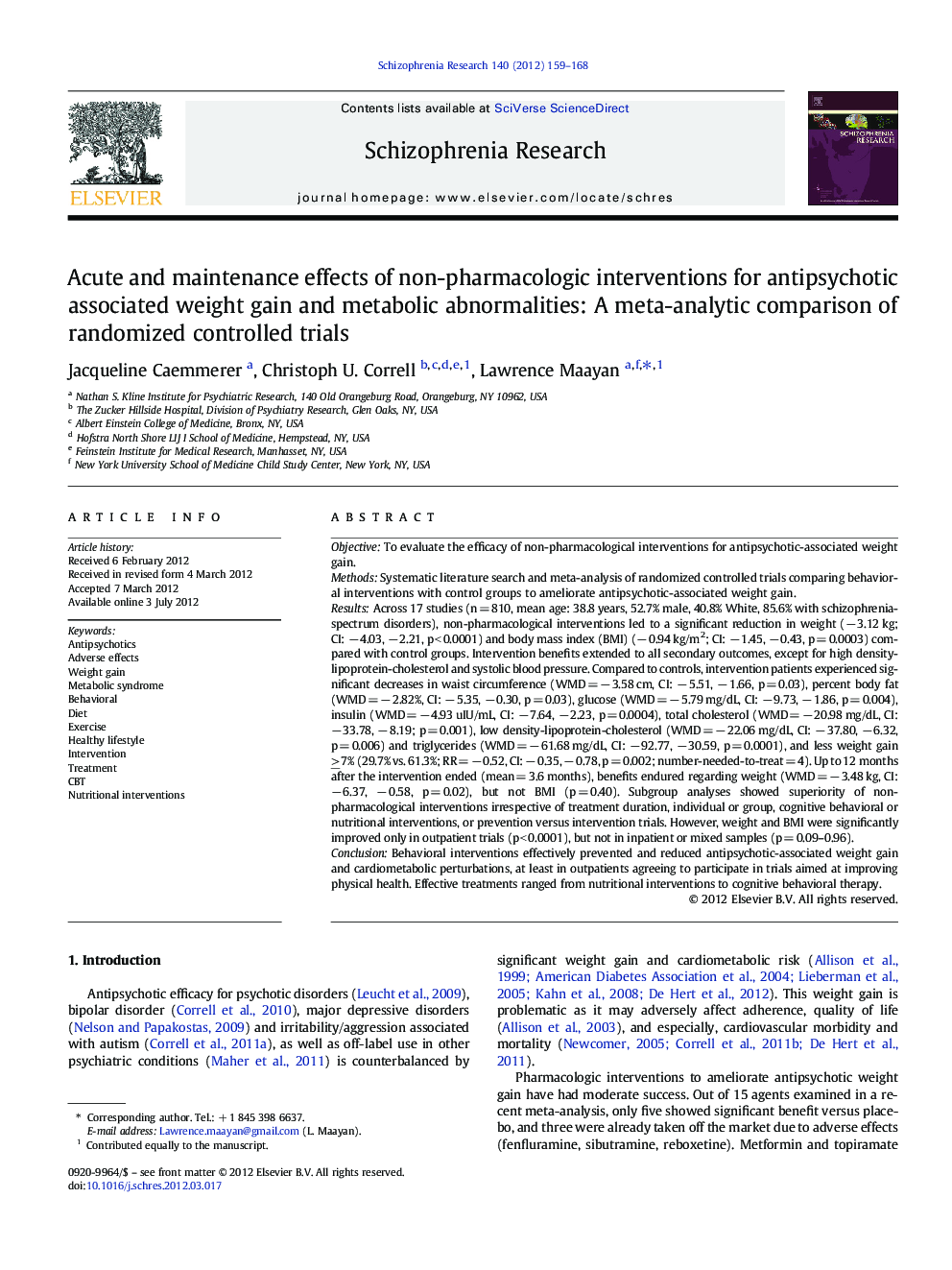| Article ID | Journal | Published Year | Pages | File Type |
|---|---|---|---|---|
| 339830 | Schizophrenia Research | 2012 | 10 Pages |
ObjectiveTo evaluate the efficacy of non-pharmacological interventions for antipsychotic-associated weight gain.MethodsSystematic literature search and meta-analysis of randomized controlled trials comparing behavioral interventions with control groups to ameliorate antipsychotic-associated weight gain.ResultsAcross 17 studies (n = 810, mean age: 38.8 years, 52.7% male, 40.8% White, 85.6% with schizophrenia-spectrum disorders), non-pharmacological interventions led to a significant reduction in weight (− 3.12 kg; CI: − 4.03, − 2.21, p < 0.0001) and body mass index (BMI) (− 0.94 kg/m2; CI: − 1.45, − 0.43, p = 0.0003) compared with control groups. Intervention benefits extended to all secondary outcomes, except for high density-lipoprotein-cholesterol and systolic blood pressure. Compared to controls, intervention patients experienced significant decreases in waist circumference (WMD = − 3.58 cm, CI: − 5.51, − 1.66, p = 0.03), percent body fat (WMD = − 2.82%, CI: − 5.35, − 0.30, p = 0.03), glucose (WMD = − 5.79 mg/dL, CI: − 9.73, − 1.86, p = 0.004), insulin (WMD = − 4.93 uIU/mL, CI: − 7.64, − 2.23, p = 0.0004), total cholesterol (WMD = − 20.98 mg/dL, CI: − 33.78, − 8.19; p = 0.001), low density-lipoprotein-cholesterol (WMD = − 22.06 mg/dL, CI: − 37.80, − 6.32, p = 0.006) and triglycerides (WMD = − 61.68 mg/dL, CI: − 92.77, − 30.59, p = 0.0001), and less weight gain > 7% (29.7% vs. 61.3%; RR = − 0.52, CI: − 0.35, − 0.78, p = 0.002; number-needed-to-treat = 4). Up to 12 months after the intervention ended (mean = 3.6 months), benefits endured regarding weight (WMD = − 3.48 kg, CI: − 6.37, − 0.58, p = 0.02), but not BMI (p = 0.40). Subgroup analyses showed superiority of non-pharmacological interventions irrespective of treatment duration, individual or group, cognitive behavioral or nutritional interventions, or prevention versus intervention trials. However, weight and BMI were significantly improved only in outpatient trials (p < 0.0001), but not in inpatient or mixed samples (p = 0.09–0.96).ConclusionBehavioral interventions effectively prevented and reduced antipsychotic-associated weight gain and cardiometabolic perturbations, at least in outpatients agreeing to participate in trials aimed at improving physical health. Effective treatments ranged from nutritional interventions to cognitive behavioral therapy.
